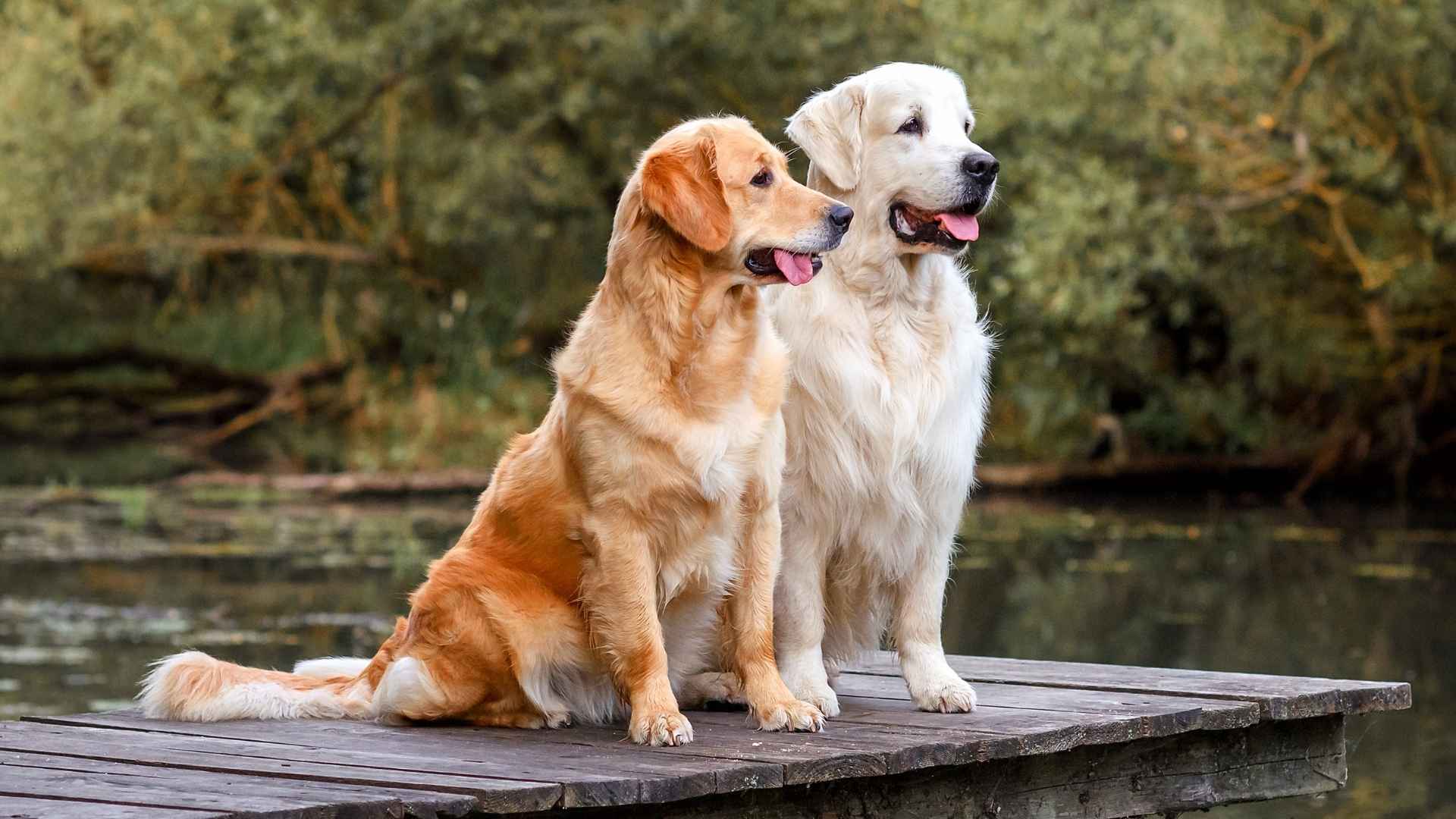Harmony at home starts with the right match, especially if you already have one or two dogs in the mix. While some breeds prefer the solo spotlight, others thrive in the company of their canine peers. These sociable breeds are naturals when it comes to sharing space, toys, and even their humans.
Whether it’s a romp in the park or a lazy afternoon snuggle session, these dog breeds understand the unspoken language of pack life.
But what makes a dog “dog-friendly”? It’s a mix of temperament, early socialization, and breed traits that lean toward companionship over conflict. These affectionate personalities often bring balance, warmth, and a cooperative spirit that’s essential when navigating the joys (and chaos) of multi-dog living.
Here, we’ll introduce you to 7 dog breeds that are especially good with other dogs, making your home a true haven for furry friendships and peaceful coexistence.
Dog Breeds Good With Other Dogs
1. Poodle
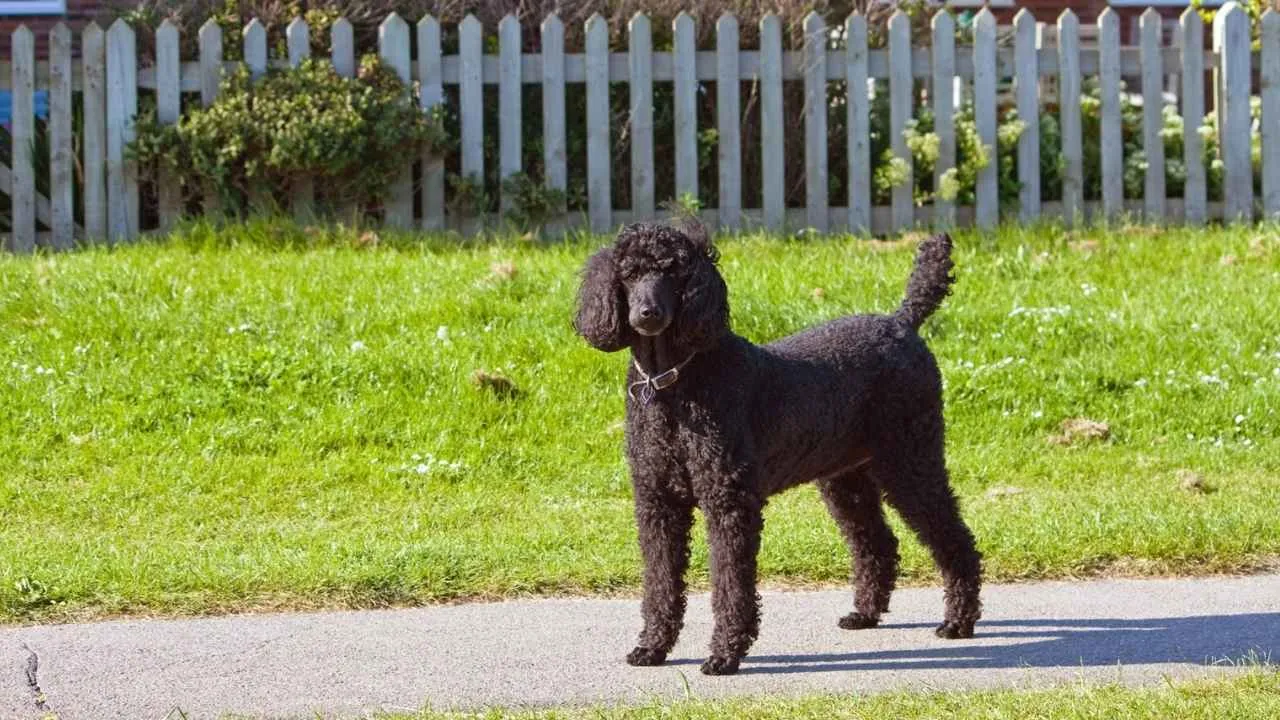
Social Skills: Professional
Poodles are the valedictorians of the dog world—brilliant, energetic, and stylish to boot. With their gorgeous curls and quick-witted brains, they’re the full package. Poodles come in three sizes—Standard, Miniature, and Toy—but all three are big on personality and friendliness.
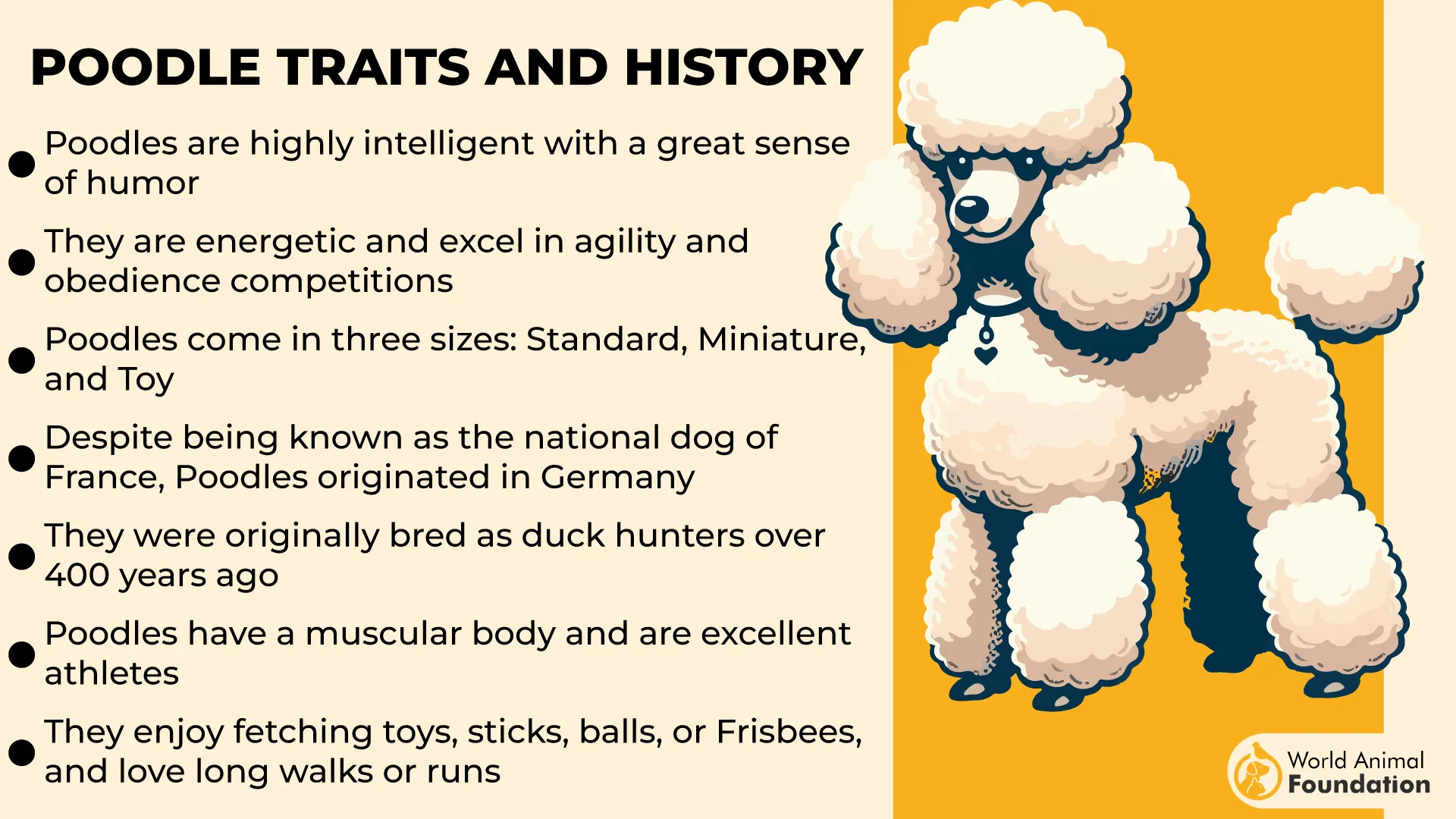
They’re natural extroverts with a love for play, and they don’t discriminate. Whether it’s a giant Great Dane or a tiny Chihuahua, Poodles are happy to make friends and share the tennis ball.
These friendly dogs are like that one friend who makes everyone feel included—and probably organizes group hikes.
Why You’ll Love Them
Poodles are easy to train and love working with their humans, perfect for building trust in rescue situations.
These dogs can read a room. Whether you’re feeling down or ready to play, your Poodle will match your energy.
Great for active adopters or couch cuddlers (as long as there’s a walk involved later).
Their open-hearted friendliness means they’re usually happy in multi-pet homes.
According to Britannica, Poodles are incredibly versatile dogs eager to engage in a wide range of activities. They excel in dog sports such as agility, obedience, dock diving, swimming, tracking, nose work, barn hunt, and even waterfowl hunting and retrieving.
The Poodle’s coat requires careful maintenance. While they shed very little, their hair can easily become matted. To prevent tangles and mats from forming, daily brushing down to the skin is essential.
2. Pug
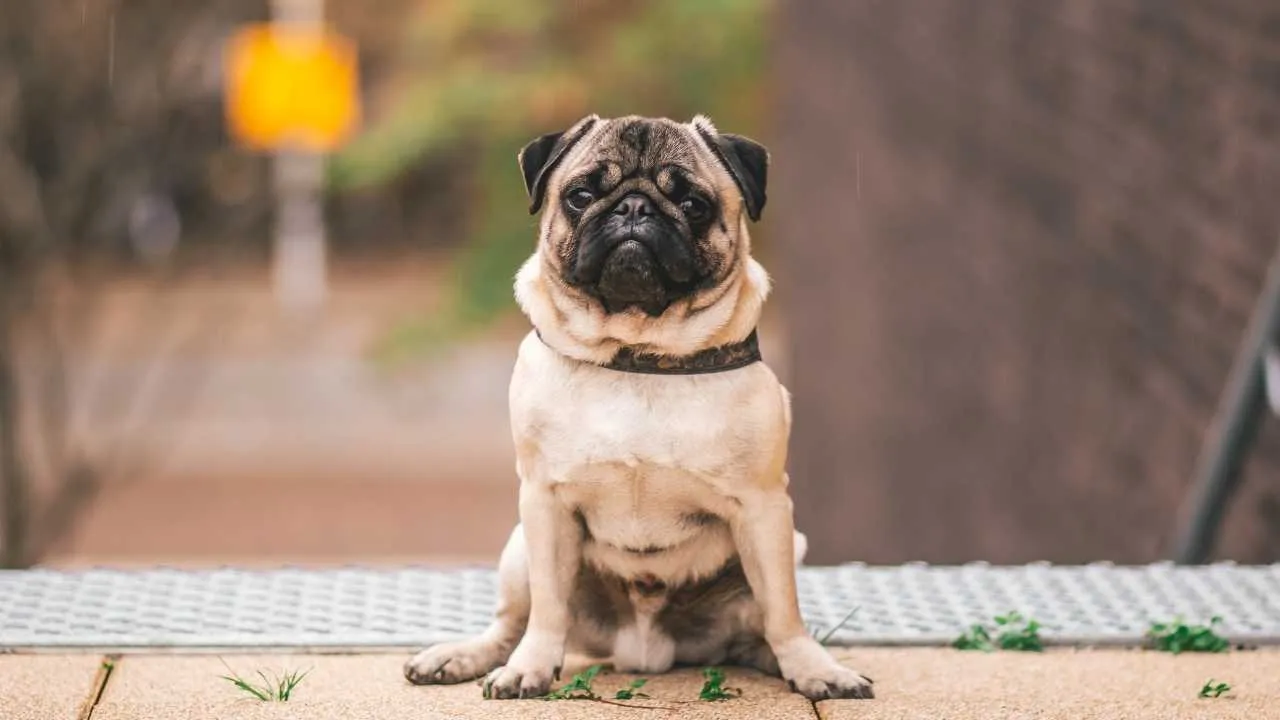
Social Skills: Comedic Genius
The Pug is a historic breed that dates back approximately 2,000 years to ancient China. Loved by royalty across the globe, Pugs have long been treasured companions and remain a beloved breed worldwide today.
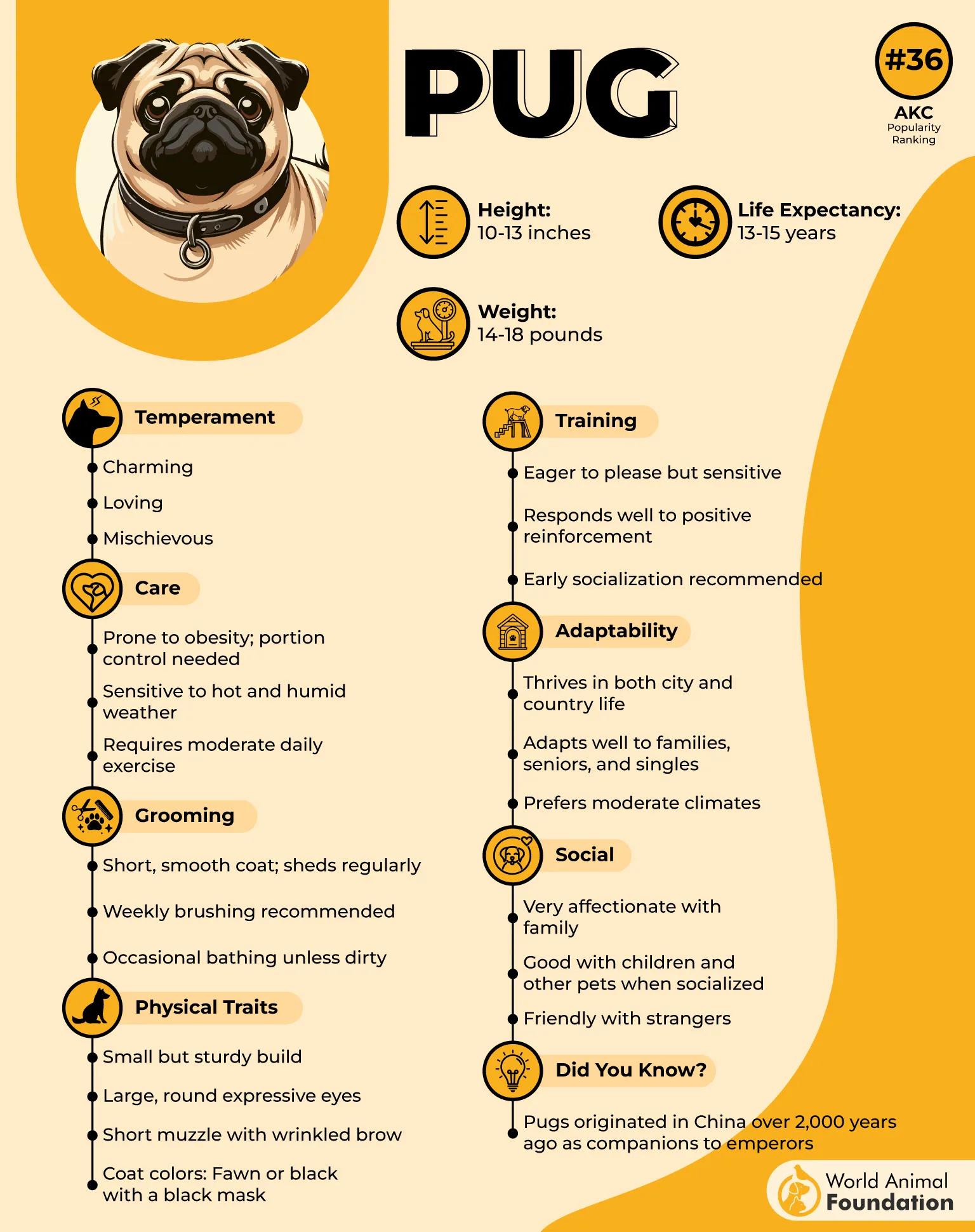
The Pug is the stand-up comedian of the canine world. With their smooshy face, curly tail, and non-stop snorts, they’re impossible not to love. Their motto? “Snack first. Nap second. Play whenever.”
Pugs are easygoing and friendly with just about anyone (even the grumpy neighbor’s cat). They love group cuddles and aren’t shy about plopping their potato-shaped body into a new friend’s lap.
Note: Your Pug may snore louder than your grandpa, but it only adds to the charm.
Why You’ll Love Them
They bond deeply with their humans and crave companionship.
Rarely aggressive, Pugs are lovers, not fighters.
Their compact size makes them great for apartments or smaller homes.
They’re always down for a cuddle puddle—alone or with furry siblings.
Pugs are typically cheerful and content dogs. Although they experience occasional bursts of energy, they mostly enjoy relaxing and are happy being calm. For exercise, several short walks of around 15 to 20 minutes each work well to keep most Pugs healthy and happy.
3. Pembroke Welsh Corgi
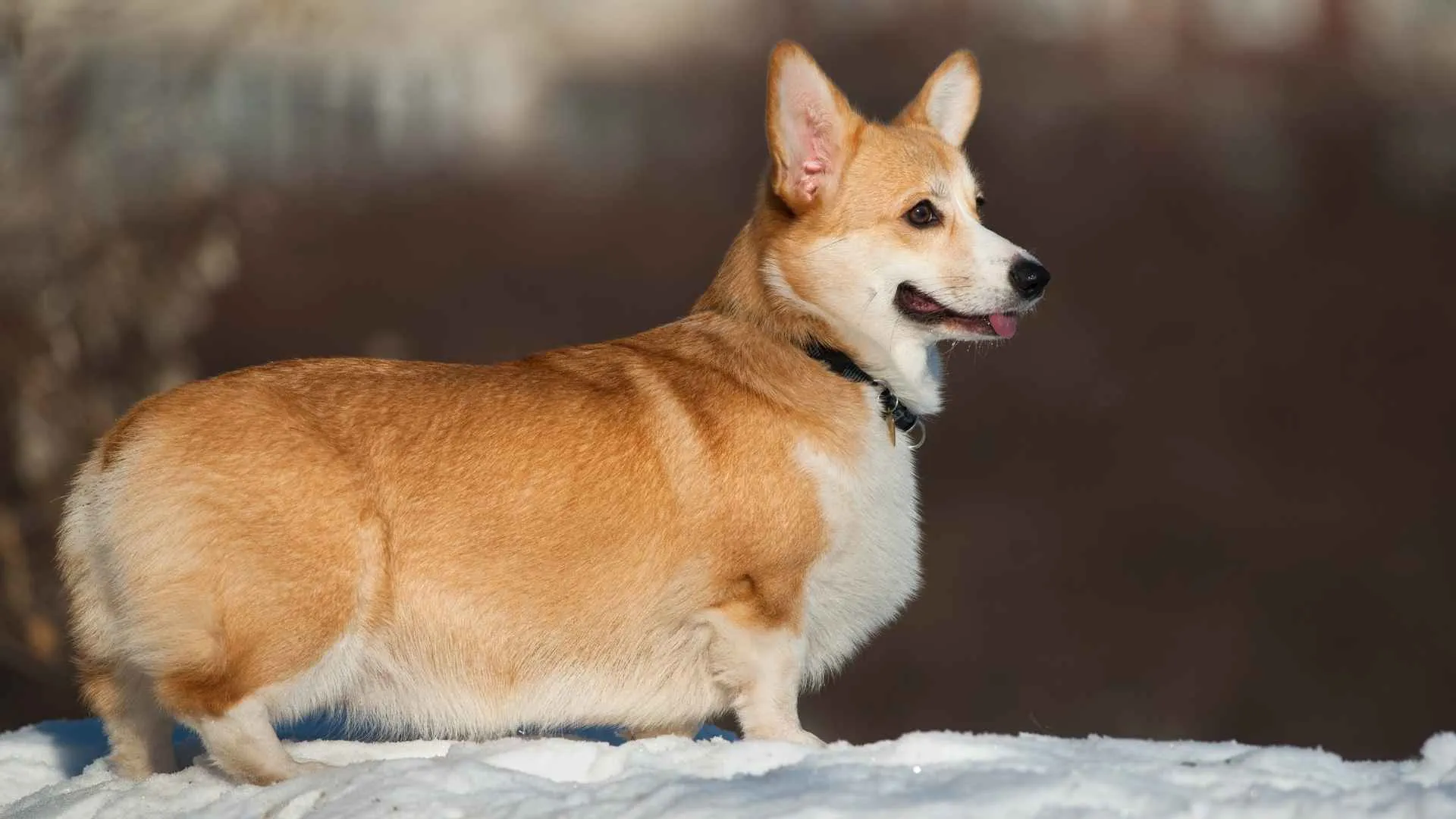
Social Skills: Herding the Party Together
Don’t let those tiny legs and bootylicious backsides fool you—Pembroke Welsh Corgis are bursting with personality.
Originally bred to herd cattle (yes, really), Corgis are bossy in the best way. They love being part of a pack and do especially well with other small to medium-sized dogs who can keep up with their herding antics.
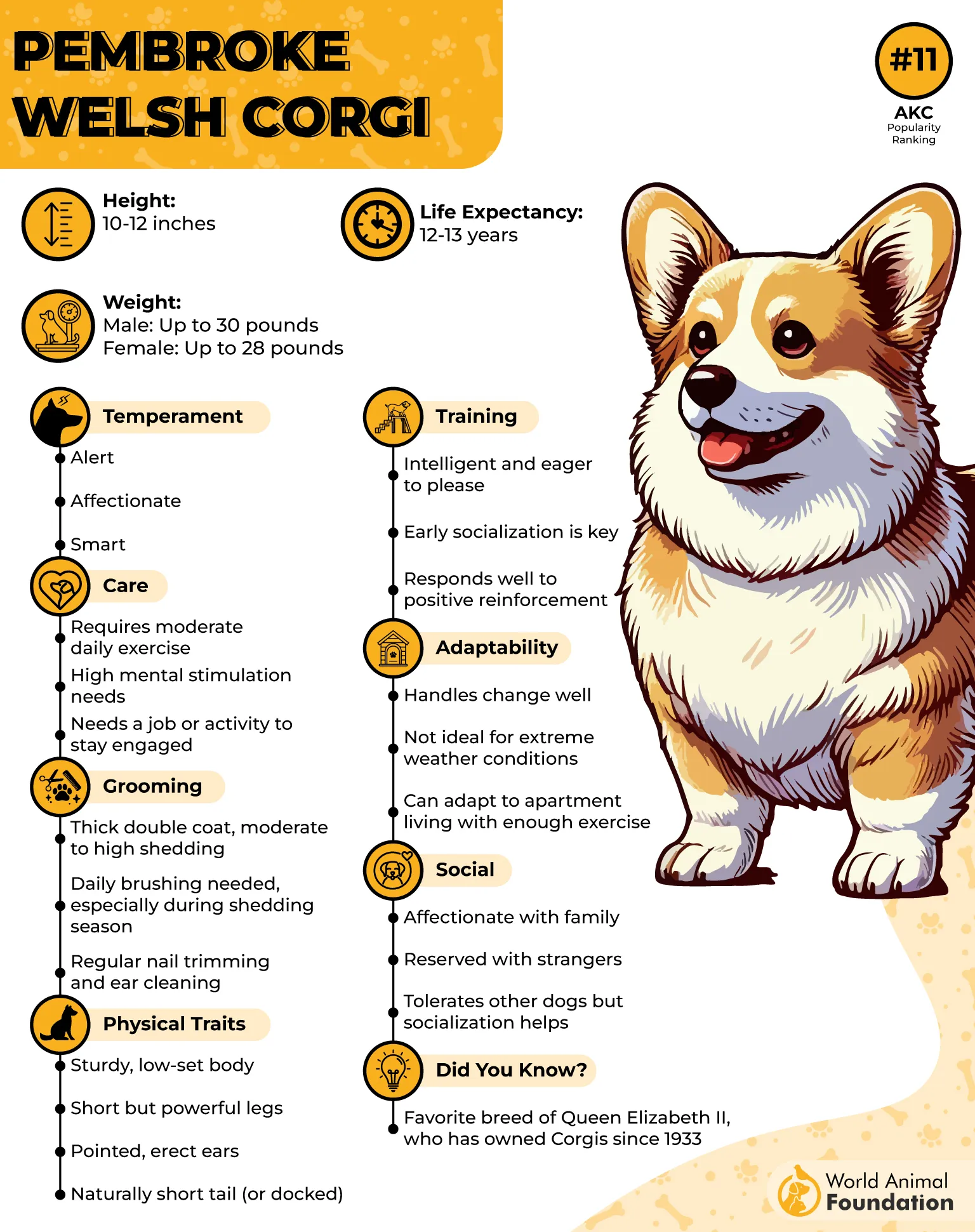
They’re smart, affectionate, and always ready to throw in a dramatic head tilt for extra cuteness points. Whether you’re in a city apartment or country cottage, a Corgi will bring the charm—and probably herd your other pets into a tidy circle.
Fun fact: That signature Corgi strut? Royal family approved
Why You’ll Love Them
Corgis thrive in multi-dog households and are always down for playtime.
They’ll follow you anywhere but won’t panic if you leave the room (well, maybe just a little).
Great for families or individuals who want a fun training partner.
They bring a lot of love without taking up a lot of couch space.
They thrive when they have a purpose, especially activities that challenge their minds. Their short legs are well-suited for long walks or even a gentle jog. They particularly enjoy agility training, herding games, and tracking activities.
A balanced diet combined with regular exercise helps keep your Corgi in top shape and spirits. While Pembroke Welsh Corgis can adapt well to apartment living, they do need daily walks and active playtime to stay happy and healthy.
4. Golden Retriever
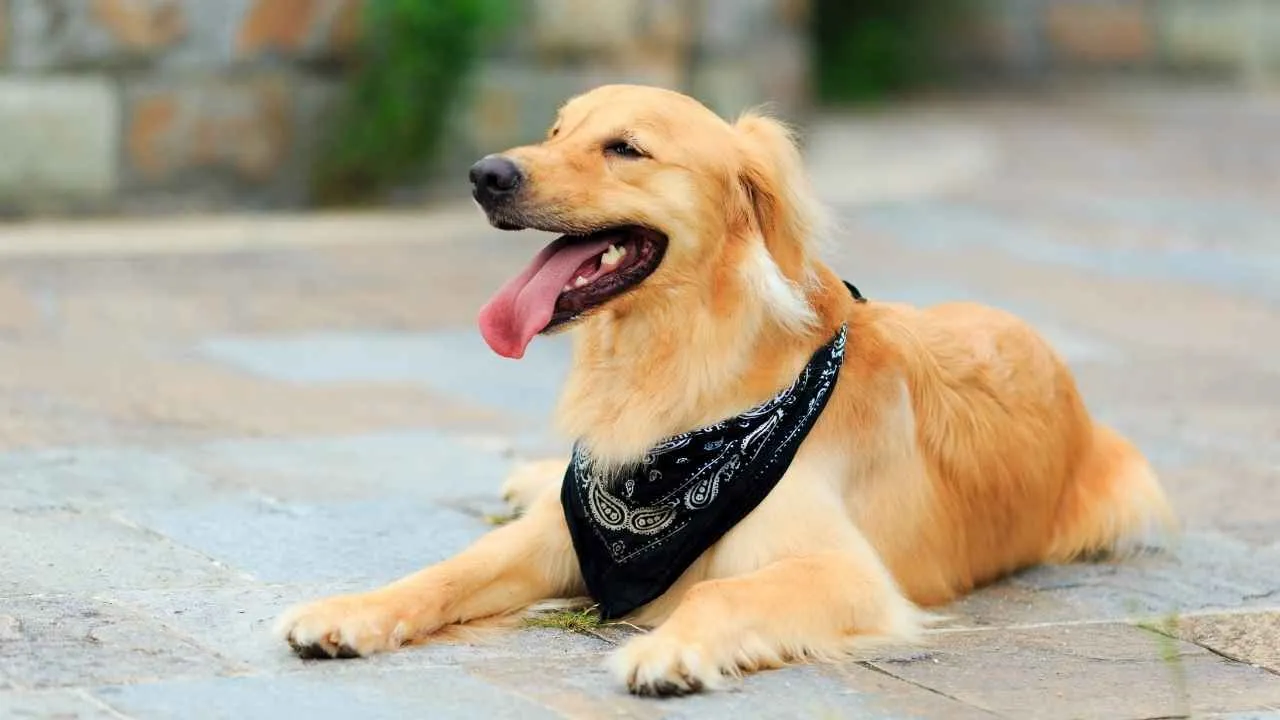
Social Skills: Everybody’s Best Friend
Golden Retrievers are the golden retriever of dog breeds (you know what we mean). Sweet, goofy, and the embodiment of “man’s best friend,” these pups get along with everyone—dogs, kids, cats, mail carriers, and probably your ex, too.
Golden Retrievers are not only smart but also deeply empathetic, traits that make them outstanding service and therapy dogs. Their gentle nature and trainability contribute to their lasting popularity—it’s no wonder they consistently rank among the top ten most beloved dog breeds in the United States!
They’re always ready to play, always down for a cuddle, and always sporting that signature goofy grin. They’re also super empathetic, which makes them a dream companion and a dog park diplomat.
Warning: Golden Retrievers may cause excessive smiling and spontaneous hugs.
Why You’ll Love Them
Perfect for first-time dog parents or families with young kids.
A dream to train and always up for a job—especially if snacks are involved.
Thrive in homes with other pets and love a busy household.
Once you’ve got a Golden, you’ve got a friend forever.

Golden Retrievers can be considered high-maintenance for some owners due to their energetic nature and grooming demands. Their thick, beautiful coat needs regular brushing to prevent matting, particularly during shedding seasons.
These dogs also need plenty of physical exercise and mental engagement to stay happy, and they don’t do well when left alone for long, as they can develop separation anxiety.
5. Labrador Retriever

Social Skills: MVP of the Dog Park
It’s no surprise that Labradors are consistently ranked the most popular dog breed. They’re friendly, loyal, and obsessed with making you happy (and also maybe with chewing tennis balls into oblivion). Labs are super sociable with other dogs and people, and they radiate golden-retriever-level sunshine energy 24/7.
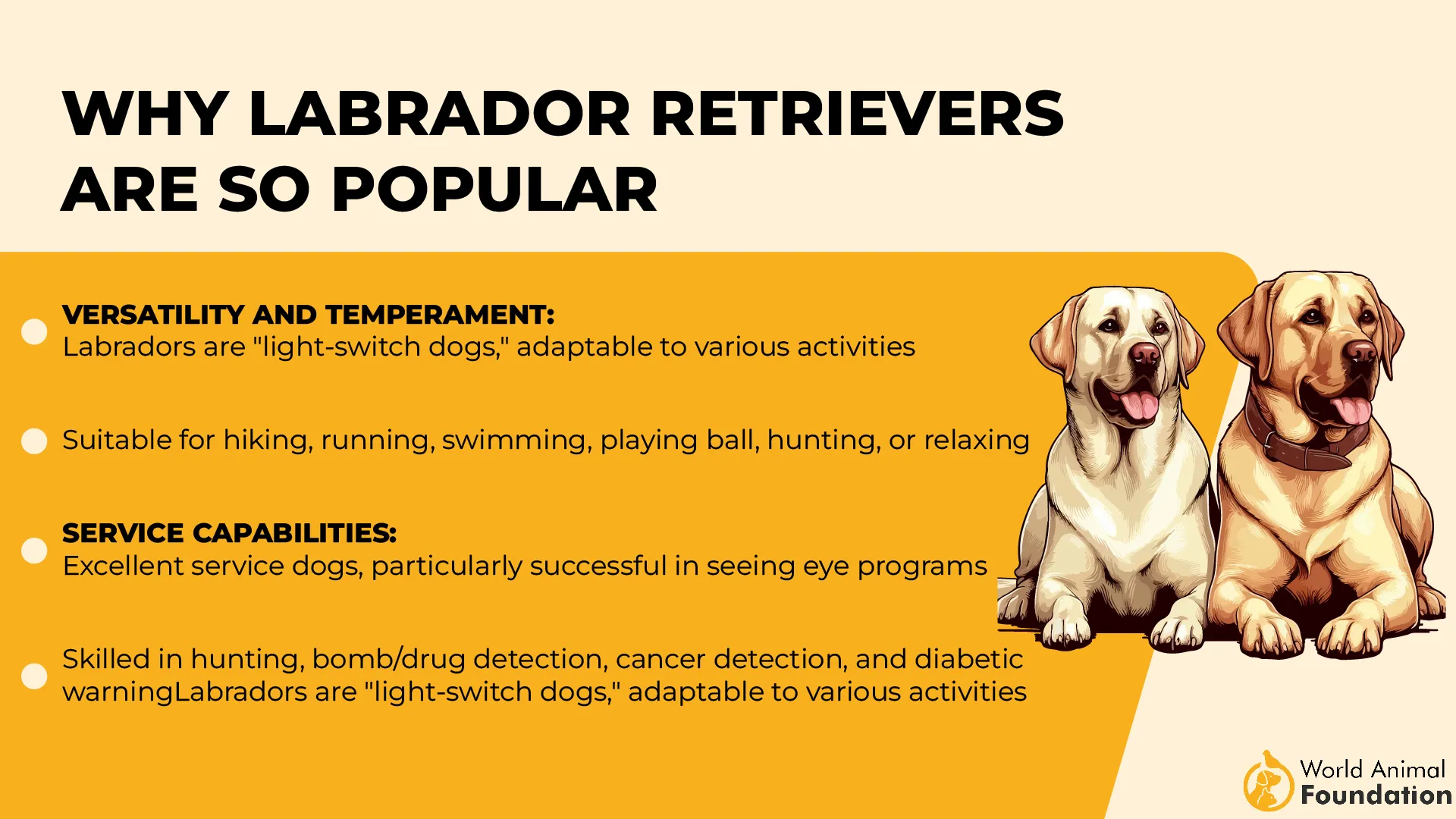
Just be cautious with other small animals—Labs still have a strong prey drive from their hunting days as a hunting dog. Hamsters may not appreciate their “friendly curiosity.”
Labrador retrievers don’t just wag their tails—they wag their whole bodies. It’s like living with a happy little earthquake.
Why You’ll Love Them
Whether you’re hiking, chilling, or doing laundry, your Lab is in.
They don’t just love you—they adore you.
Great with Kids and Dogs: Born to be a great family dog.
Labs love being part of the pack and bring harmony wherever they go.
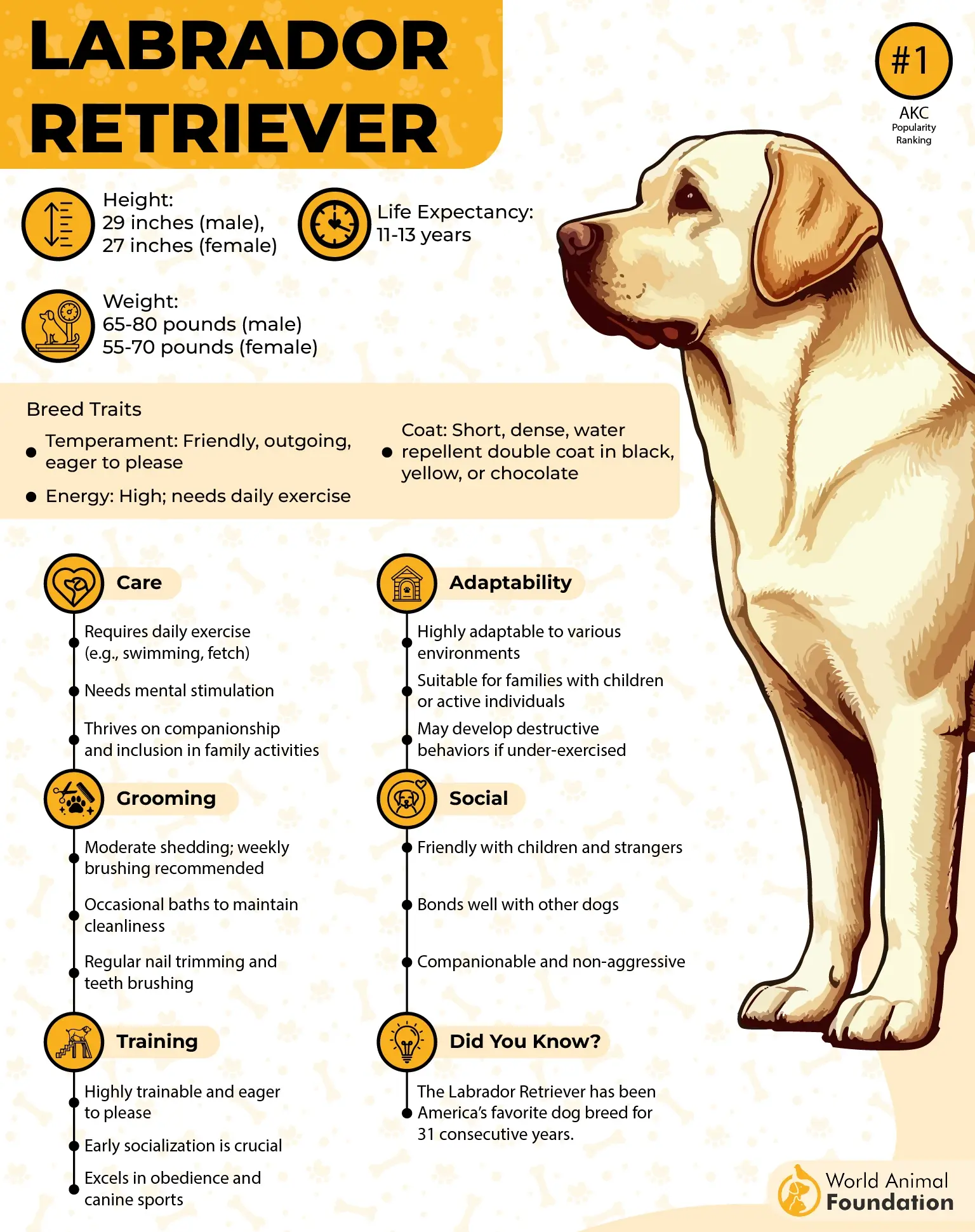
Labradors are versatile companions who thrive equally well with single owners or as part of a family. They’re known for their friendly nature and tend to get along great with children and other pets, making them a popular choice for households of all kinds.
As noted by Petplan, Labradors are naturally very social dogs. Allowing them to interact and play freely with other dogs in a secure environment not only gives them excellent physical exercise but also provides important mental stimulation.
6. Shetland Sheepdog
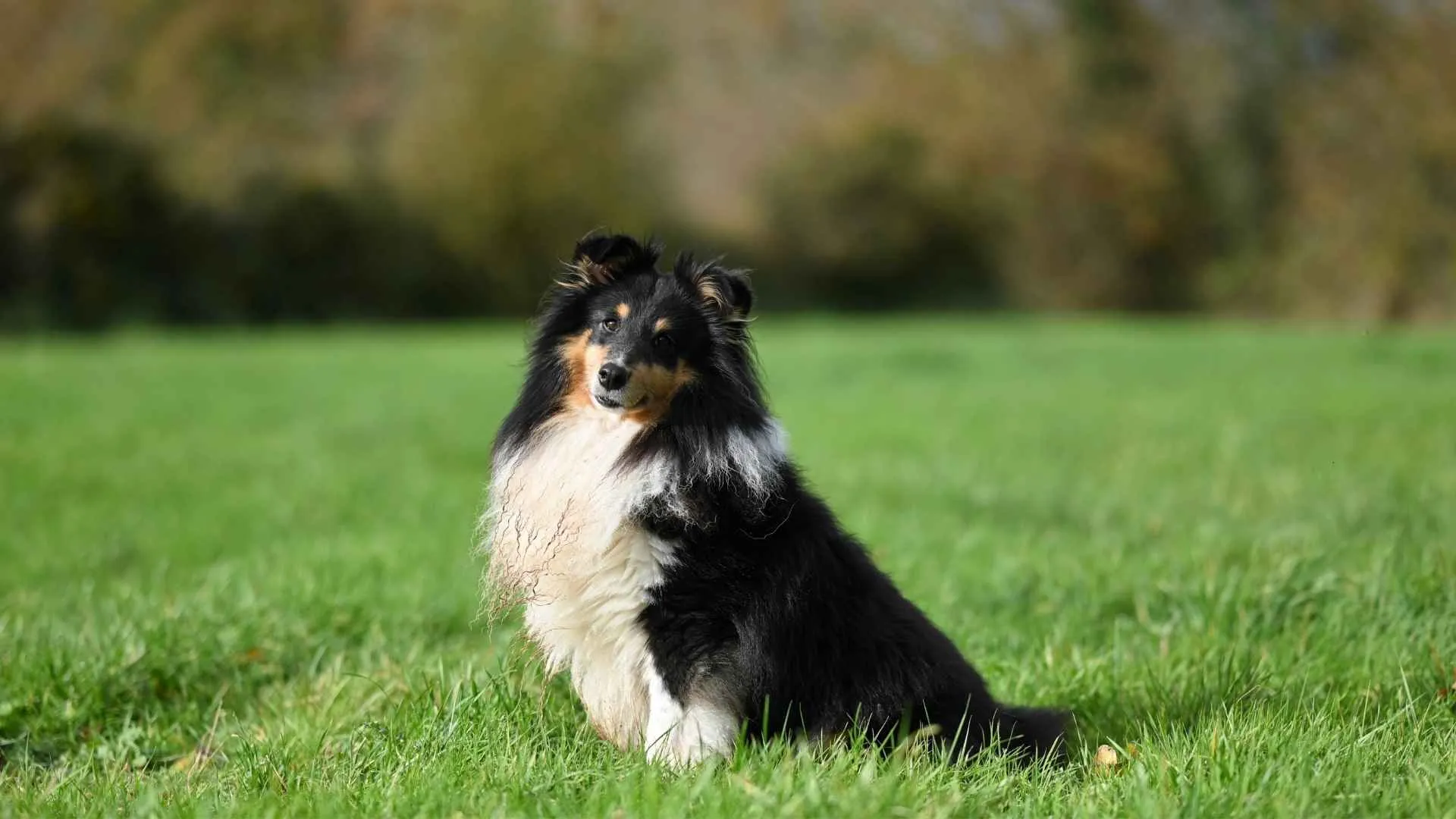
Social Skills: The Smart Kid Who’s Nice to Everyone
If the Shetland Sheepdog (aka Sheltie) went to school, it would be the overachiever who aces every test and helps others study. These fluffballs are as brainy as they are beautiful—and yes, they know it.
Bred to herd sheep on the rocky Shetland Islands of Scotland, Shelties are highly intelligent, eager to please, and naturally gentle.
According to the American Kennel Club (AKC), Shelties are intelligent, enthusiastic learners who excel in training and consistently shine in obedience, agility, and herding competitions.
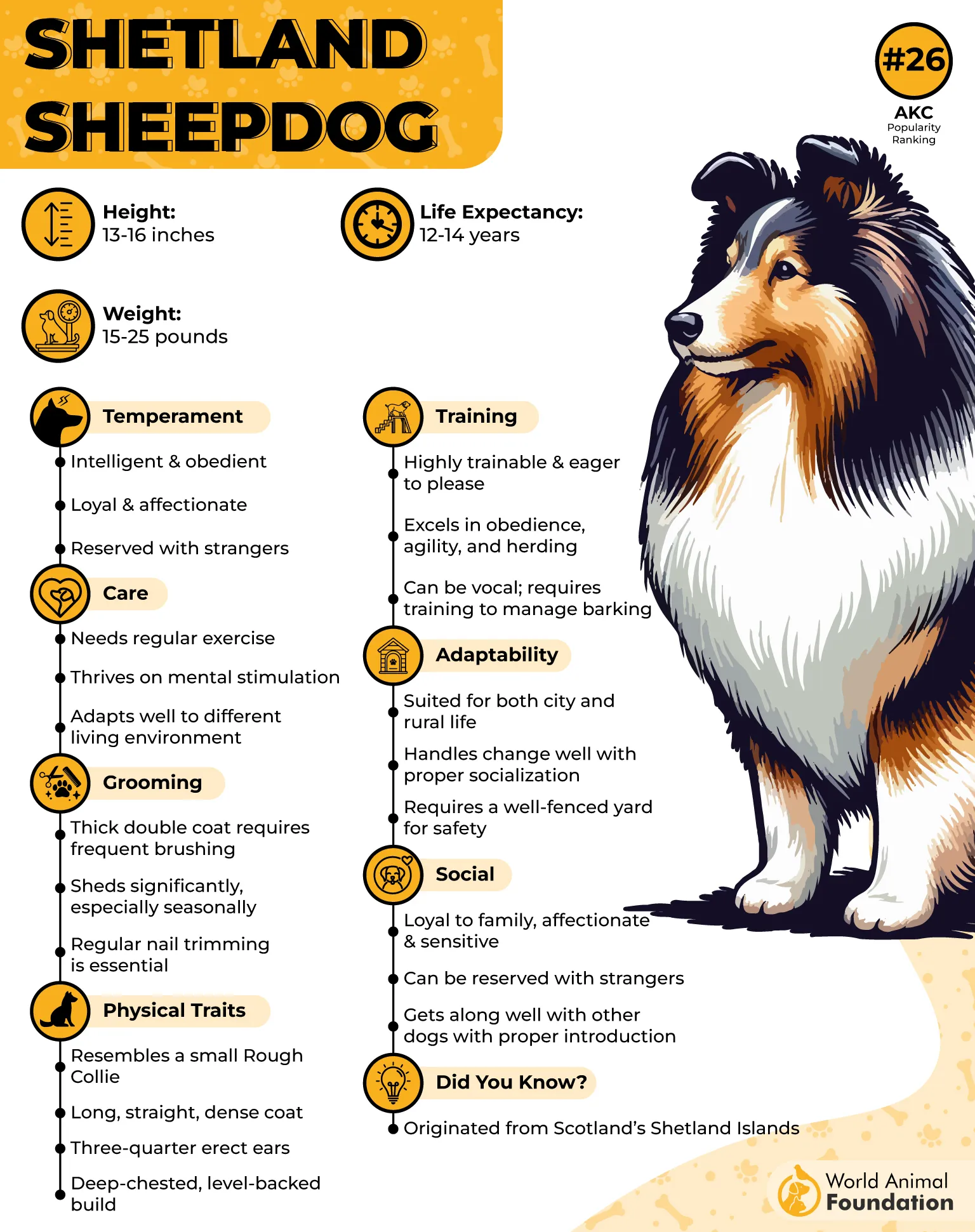
Their easy-going nature makes them great in multi-dog households, especially with other dogs who share their love for play and structured routines. They’re also incredibly intuitive—you’ll swear they can read your mind (or at least your mood).
Pro tip: Their bark is worse than their bite—and they will announce every squirrel that walks past your window.
Why You’ll Love Them
Shelties thrive with training and love learning new tricks.
Their herding instincts often extend to “herding” their doggy siblings—adorably, of course.
Once bonded with you (and your crew), they’re all in.
Whether it’s agility, fetch, or group zoomies, they’re in the game.
7. Pekingese
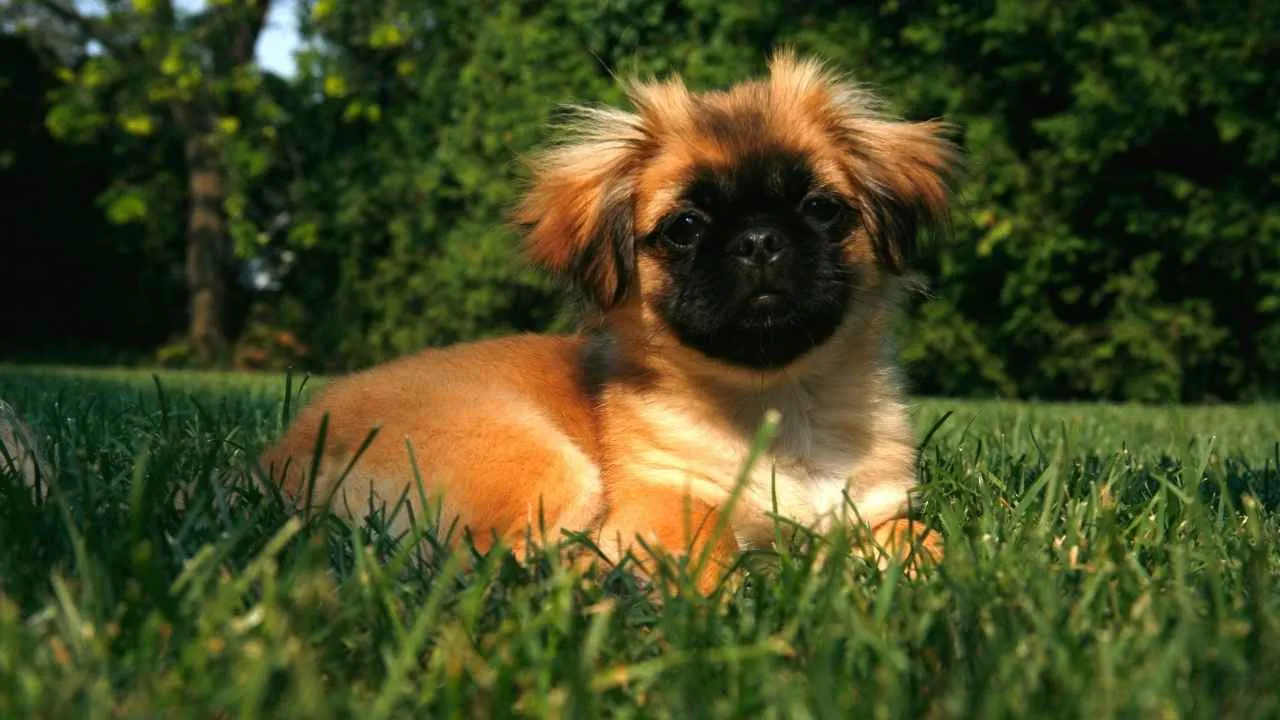
Social Skills: Dignified Diva with a Dash of Sass
Good With Other Dogs? Yes—if they’re polite enough to acknowledge their royal status
The Pekingese may be small in size, but they carry themselves like they own the palace—and honestly, they kind of do.
Originally bred to warm the laps of Chinese royalty, this toy breed still exudes an air of regal entitlement that’s more charming than snooty. They’ll strut into a room like they were summoned, not like they live there.
Despite their royal attitude, Pekingese are surprisingly adaptable and can get along well with other dogs, especially those who respect their space and don’t try to steal their spotlight (or their favorite sunbeam). They’re not typically fans of roughhousing, so they prefer chill companions over rowdy wrestlers.
Why You’ll Love Them
They form deep bonds with their humans and may tolerate or even mildly enjoy canine siblings.
Not the zoomies type; more the “watch the zoomies from a distance with judgment” type.
Adds major character to your pack, with minimal exercise needs.
They like company, but also value their “me time.”
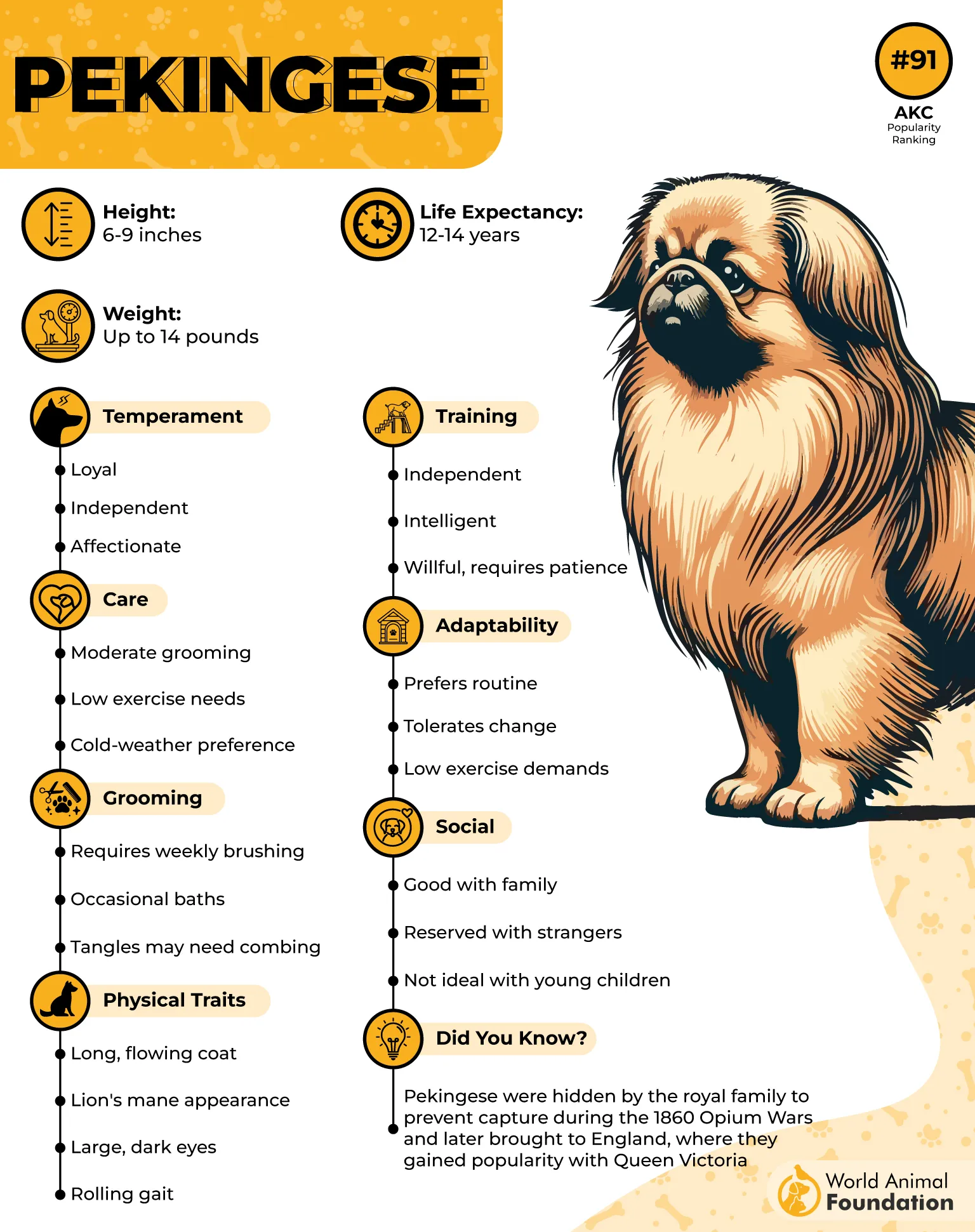
That glorious lion-like mane? It’s not low-maintenance. Pekingese have a long, thick double coat that requires regular brushing—ideally at least 3–4 times a week, if not daily. Otherwise, it’s tangle-city and mat central.
Fun Fact:
The Pekingese’s rolling, lion-like gait is not just adorable—it’s historic. Ancient Chinese emperors believed the breed descended from a lion that fell in love with a marmoset and begged the gods to shrink it. So yes, your Peke walks like they’ve got divine approval.
Conclusion
Dog breeds that are good with other dogs make an excellent addition to any family or household. Other dog breeds like the Cavalier King Charles Spaniel, Cocker Spaniel, Bichon Frise, Beagle, Maltese, and even larger breeds such as the German Shepherd, Great Dane, and Border Collie are generally known for their affectionate and gentle temperament. When properly socialized from early experiences, certain breeds tend to get along well not only with other dogs and puppies but also with cats and other pets, creating a harmonious environment. Rescue dogs and mixed breeds can also thrive in multi-pet households, especially when introduced carefully and given plenty of play time to build positive relationships.
Pack dogs and social breeds like the English Foxhound or Basset Hound usually enjoy the company of dogs alike and respond well to structured socialization. This social behavior, combined with an athletic and fun-loving nature, helps reduce aggressive tendencies and promotes friendly interactions. Choosing joyful dog breeds that are good with other dogs involves making an informed decision based on temperament, behavior, and early socialization. These resident dogs are affectionate, gentle, and well-socialized pups that can become wonderful companions and an excellent addition to any household, bringing happiness to both humans and animals alike.


